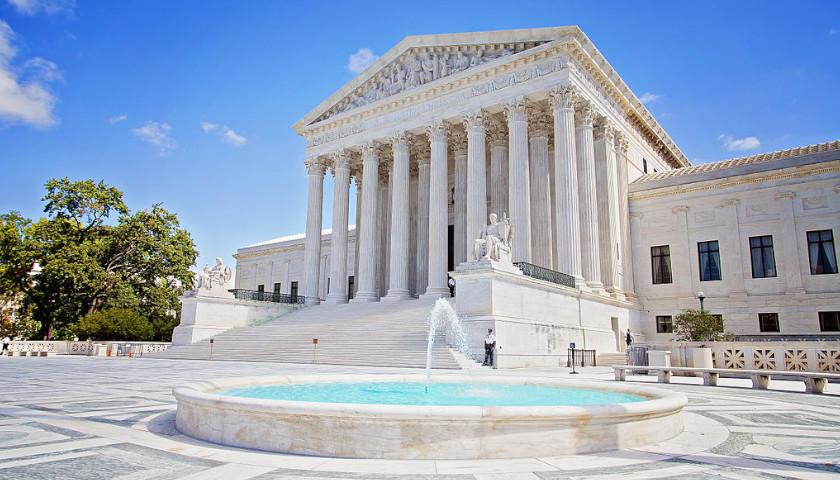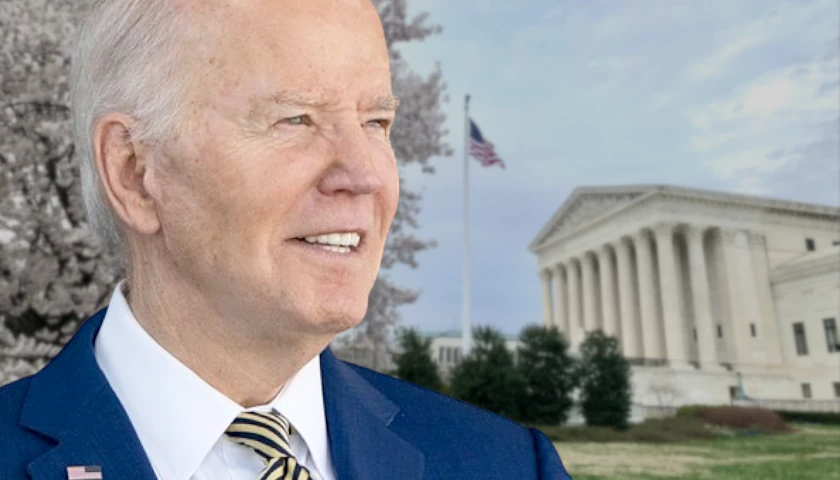by Bethany Blankley
The nonpartisan Congressional Budget Office this week revealed the magnitude of the federal deficit, growing to $1.7 trillion in one year, as the national public debt reached $34.7 trillion for the first time in U.S. history.
On Monday alone, the national public debt grew by $37 billion. By Tuesday, it surpassed $34.7 trillion overall.
The national debt is separate from the deficit. A deficit “occurs when the federal government’s spending exceeds its revenues,” the Treasury explains. As deficits accumulate, the national debt rises.
In fiscal 2023, federal government spending totaled $6.13 trillion and total revenue totaled $4.44 trillion, resulting in a deficit of $1.7 trillion, an increase of $320 billion from the previous fiscal year, the Treasury notes. It also explains, “since 2001, the federal government’s budget has run a deficit each year. Starting in 2016, increases in spending on Social Security, health care, and interest on federal debt have outpaced the growth of federal revenue.”
In its monthly budget review for May 2024, the CBO estimates that the federal budget deficit was $1.2 trillion in the first eight months of fiscal 2024 – $38 billion more than it was during the same period in the previous fiscal year. The federal government borrowed $1.2 trillion to cover expenses it didn’t have the funds to cover.
It also notes that the deficit in May was $348 billion, $108 billion more than the amount recorded in May 2023.
In the past 12 months, from June 2023 to May 2024, the federal budget deficit totaled $1.7 trillion, incorporating the $348 billion May deficit.
In its monthly report, CBO issues an analysis of federal spending and revenues for the previous month and the fiscal year to date. Revenues were $294 billion (or 10 percent) higher, and outlays were $332 billion (or 8 percent) higher, from October 2023 through May 2024 than during the same period in fiscal 2023. The fiscal year runs Oct. 1 through Sept. 30.
Social Security benefit spending increased by $74 billion (or 8 percent) because the average benefit payment increased primarily due to cost-of-living adjustments. Medicare outlays increased, on net, by $51 billion (or 10 percent), primarily because benefit payments to Medicare Advantage plans increased. Medicaid outlays decreased by $8 billion (or 2 percent).
Department of Defense spending totaled $39 billion, or 8 percent more than in the same period last fiscal year; DoD spending increased by $8 billion (or 12 percent). Department of Veterans Affairs increased spending by $27 billion, or 14 percent, according to the report.
In an analysis of the data, the Committee for a Responsible Government said, “Rising spending and declining revenue has led to our deteriorating fiscal situation.” Debt is projected to increase from 97 percent of GDP from the end of fiscal 2023 to a record 106.4 percent of GDP by 2028, “steadily increasing to 166 percent of GDP by the end of 2054,” it notes.
In another analysis, citing Bureau of the Fiscal Service data, E. J. Antoni, Ph.D., an economist at the Heritage Foundation, argues that as the federal debt increases, the “true daily deficit” is being masked by the amount of cash being drained from the U.S. Treasury by Treasury Department Secretary Janet Yellen, The Center Square reported.
“With only four months left in the fiscal year, the United States has borrowed $1.2 trillion, a shocking $4.9 billion per day on average. Clearly, we need to figure out our fiscal situation soon, before things get more out of control,” Maya MacGuineas, president of the Committee for a Responsible Federal Budget, said.
Critics note that Congress has spent more money on interest on the national debt this year alone than it spent on both the national defense budget and Medicare, The Center Square reported.
Spending on interest on the national debt is also only expected to increase, the CBO has projected, with interest costing more than double the U.S. GDP over the next 30 years.
The committee has called on Congress to implement solutions, saying, “Action is needed from lawmakers for both immediate and long-term solutions to our fiscal deterioration. Policymakers should work together to reduce the debt-to-GDP ratio and improve our economic outlook.”
– – –
Bethany Blankley is a contributor at The Center Square.
Background Photo “U.S. Department of the Treasury” by AgnosticPreachersKid. CC BY-SA 3.0.




